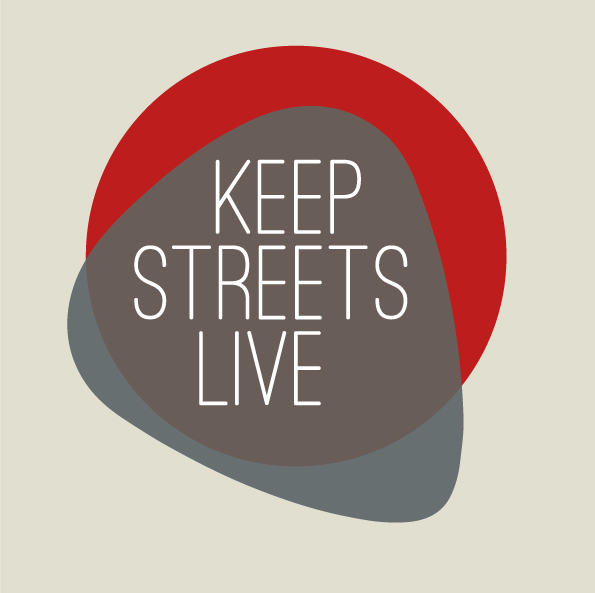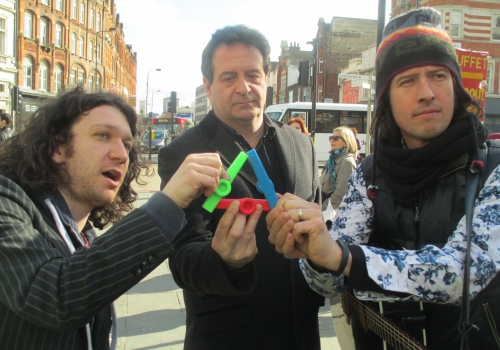Keep Streets Live response to Cultural Clampdown/PSPO consultation in Birmingham

A real threat exists to cultural and civic freedoms on the streets of Birmingham where the City Council have opened a consultation to make it a criminal offence for buskers to use any amplification on key pitches in the city. Please take the time to respond to the online consultation which you can complete by following this link: https://www.birminghambeheard.org.uk/place/the-introduction-of-public-spaces-protection-order/consultation/intro/view
The Keep Streets Live Campaign has already submitted a response to the consultation which we reproduce below. Our response explains in detail why the PSPO is not the right response to the problems in Birmingham and calls on the council to work with the busking community in the city to find a compromise that allows the council to deal with complaints about noise and nuisance on the one hand, but safeguards cultural freedoms and a vibrant and open busking policy on the other. You can feel free to use our response to the consultation as a reference point for your own response:
Keep Streets Live Response to PSPO Consultation
The Keep Streets Live Campaign is a not for profit organisation which exists to protect access to public space for informal offerings of art and music and to prevent the encroachment of criminal law upon grassroots culture. We seek to work alongside local authorities wherever possible to build positive relationships that safeguard street culture, and to constructively challenge policies that marginalise street culture.
We strongly oppose the use of a PSPO to place a blanket ban on amplification in the proposed restricted area, and the use of a PSPO to target busking per se. Whilst we recognise that some buskers cause noise issues which need to be dealt with, the use of a blanket ban is a disproportionate response because it penalises many street artists and performers who have not been causing issues and is therefore arbitrary. Any musician who breached the proposed ‘Public Space Protection Order’ would face a potential criminal record and punitive fines. The proposals would marginalise its street artists and musicians and devastate their livelihoods by effectively making it illegal to perform with instruments that incorporate any form of amplification on some of the key busking pitches in the city. This would diminish the informal cultural life of the city of Birmingham and deprive visitors and residents alike of a huge range of musical performances in the social and grassroots cultural hub of the city.
The Antisocial Behaviour Crime and Policing Act 2014 should not be used to stifle freedom of expression and criminalise musicians. Busking is a social activity, not an antisocial one. It is a tradition that enhances public space and deserves to be wholeheartedly supported and protected by the local authority. They already have robust powers available to tackle the inconsiderate behaviour of a small minority of performers that cause issues. It is already a criminal offence to create a noise nuisance on the streets, and, under the Environmental Protection Act 1990, the local authority have the power to issue noise abatement notices to anyone creating noise nuisance, including buskers, and to seize instruments.The PSPO powers contained in the the Antisocial Behaviour Crime and Policing Act 2014 were not designed to regulate busking and the government gave assurances in Parliament would not be used against buskers per se and that the powers contained in the new Act were only aimed ‘against the anti-social minority who give street performers a bad name:
“I might illustrate them as being aggressive beggars and drunken louts”(http://www.publications.parliament.uk/pa/ld201314/ldhansrd/text/140121-0001.htm#14012175000753)
Birmingham’s current proposals would affect all street musicians, not just the minority who have caused issues. The use of a PSPO prioritises ease of enforcement and administrative convenience over freedom of expression and the grassroots cultural life of the city. It represents a disproportionate response.
Many contemporary street musicians use some amplification to support outdoor musical performances. Some use quiet instruments or music technology which can’t work effectively without amplification. These include keyboards, electric violins, mandolins, guitars as well as loop pedals which are an increasingly common part of contemporary musical performances. Accomplished performances, many of which incorporate some amplification, are enjoyed by hundreds of thousands of people on the streets of Birmingham each year and are an established part of the grassroots cultural life of the city. The use of amplifiers can actually allow musicians to play and sing more quietly and still be heard just above the hustle and bustle of ambient street noise. This is especially important for vocalists who can face voice damage straining to be heard over the sounds of the street. It is not difficult to find a volume level which is not intrusive and volume levels can always be adjusted upon request. A ban on amplifiers to be consistent would logically have to extend to wind, percussion and brass instruments, all of which have the potential to be significantly louder than ‘amplified’ sound depending on the context. The issues in Birmingham have been caused not by amplification per se, but by excessive volume on the part of a small minority of individual performers. The local authority should target enforcement action against those performers who have caused a persistent issue with noise nuisance, whether amplified or unamplified, using their existing statutory powers such as the power to issue noise abatement notices and confiscate musical instruments under the Environmental Protection Act 1990. The principle that enforcement should be against individuals who have caused specific issues rather than creating an arbitrary criminal offence (i.e. use of an amplifier) is key. The local authority have powers under the new legislation to issue CPNs (Community Protection Notices) to any individual whose behaviour is of a persistent nature and is a)unreasonable and b) having a detrimental effect on those in the community. CPNs could be used by Birmingham as a power of last resort to use against buskers, or other users of public space, who have caused persistent issues. Whilst CPNs still need proper oversight, they are targeted against individuals rather then entire groups, or cultural activities and therefore represent a more proportionate and balanced response to the issue of noise from busking, enabling the local authority to take effective action against the minority of performers who cause issues, rather than requiring them to take action arbitrarily against, for example, someone using an amp in a PSPO area who otherwise is not causing any issues. CPNs could be backed up by a Best Practise Guide for busking published by the council setting out expected behaviour in the city, tailored to Birmingham’s specific cultural context and agreed between the busking community, the Musician’s Union and the business community. Such an approach has worked well in Liverpool and York and has led to a reduction in the number of complaints received about busking. A measured response that targets individuals is less likely to be politically contentious and to cause damage to the city’s reputation. It is also much more likely to be compliant with Article 10 of the Human Rights Act (Freedom of Expression) and therefore less vulnerable to legal challenge. On behalf of the Keep Streets Live Campaign I urge Birmingham City Council to take this approach.




